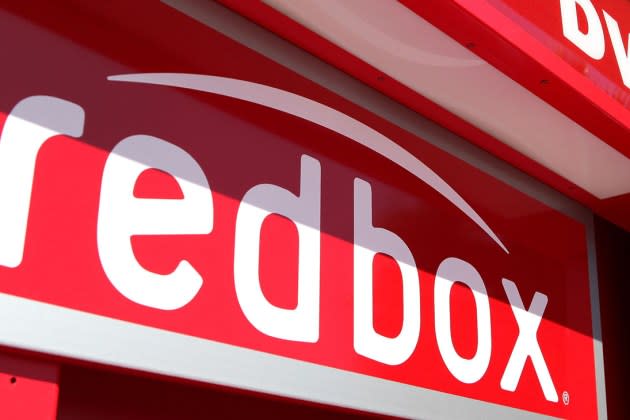Chicken Soup for the Soul, Redbox and Crackle Owner, Signals That It’s Open to Dealmaking

Chicken Soup for the Soul is forming a strategic review committee to evaluate its next steps, as the company is in the midst of enacting several cost-savings measures and prioritizing cash flow.
“In recent months, we’ve seen an increase in strategic activity within our space,” CEO William J. Rouhana, Jr. said on the earnings call Monday. “We’ve had incoming requests from financial and strategic partners. We’re going to form a strategic review committee consisting of independent board members to evaluate these opportunities, and will pursue transactions that check all the boxes and create value for our shareholders.”
More from The Hollywood Reporter
The company, which owns Redbox and Crackle, saw a net loss of $43.7 million, compared with a net loss of $20.8 million a year ago and net revenue of $79.9 million, up from $37.6 million a year ago. Shares of the company were down 18 percent in after hours trading Monday.
Chicken Soup for the Soul has seen some recent success with the priorities it outlined earlier this year, including studios “recommitting to the home video window,” a rebound in rentals and an ad market insulted from the broader advertising showdown, but “the pace at which some of them have rebounded has been slower than expected,” Rouhana said. He added that performance from the Redbox kiosks has not grown as quickly as expected, which he attributed to “sporadic new content.”
“Add to that concerns around production slowdowns and we find ourselves in a media climate that remains uncertain,” Rouhana said.
In light of that, and as part of the company’s commitment to pay down debt, Chicken Soup for the Soul has conducted a review of operations to find ways to drive greater cash flow and derisk the business. This has included cutting down on future content commitments and unwinding “millions of dollars” in content deals which did not generate cash in the near term, Rouhana said. Additionally the company has added more independent movies to the kiosks, deferred the timing of licensing deals to conserve cash and licensed its own content to third parties. He added that the company’s library may become more valuable during the strike.
“We have a large catalog we can monetize in the event of a prolonged slowdown,” Rouhana said. “In other words, the longer the strike continues the more valuable the library becomes.”
The total employee headcount has decreased by 50 people since Jan. 1, primarily due to attrition, Rouhana said. The company has also decided to let go of its Seattle office and allow those employees to work remotely.
At the beginning of the quarter, the company held a public offering of its class A common stock, with the proceeds used for working capital.
Amid the shift to “cash generating activities in lieu of future revenue drivers,” the company adjusted its guidance and now expects full-year revenue of between $400 million to $450 million, down from the prior estimate of about $500 million. Full year adjusted EBITDA will be less impacted and is expected to be between $75 million and $100 million.
One overhang on the company has been the performance of the Redbox kiosks, which the company notes it acquired about one year ago.
“They’ve grown, they’ve gone up, but they haven’t grown at the pace we were hoping they would and so we’ve been focusing really heavily on making sure we find other ways to monetize those things,” Rouhana said.
The company has begun rolling out the 1,500 kiosks announced in partnership with Dollar General. On July 12, Crackle Connex, Chicken Soup’s ad business, announced a deal with TikTok to put branded-content on more than 3,000 red box kiosk digital video screens.
Some of the highlights from the quarter came from the success of Super Mario Bros. Movie, which became the most rented movie at Redbox kiosks in its first week since Top Gun: Maverick, and the most first-week rentals for a family film since The Croods: A New Age.
Total transactional video on demand revenue was up 16 percent year over year driven by a strong spring release slate, while revenue on the company’s advertising video on demand and FAST networks was up 8 percent year over year.
“I was satisfied with most of what happened, but we started looking at the business strictly as cash flow, because that’s where we’re at. I mean, that’s where the world is at,” Rouhana said in response to an analyst question.
Correction: An earlier version of this article misstated the number of employee reductions. It has been updated.
Best of The Hollywood Reporter
Meet the World Builders: Hollywood's Top Physical Production Executives of 2023
Men in Blazers, Hollywood’s Favorite Soccer Podcast, Aims for a Global Empire

